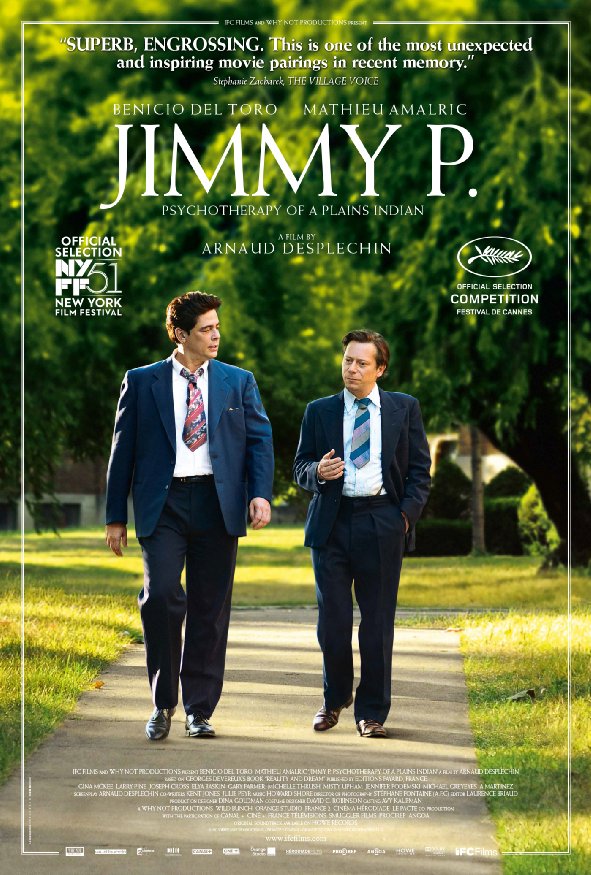Something different (as well as his second film in the English language) from French filmmaker Arnaud Desplechin is his (along with co-writers Kent Jones and Julie Peyr) adaptation of ethnologist/ psychoanalyst Georges Devereux's book, Reality and Dream: Psychotherapy of a Plains Indian. The subtitle of the book is also the subtitle of this movie -- JIMMY P. -- and I'm wondering if it perhaps turned audiences off a bit, making them imagine they'd be getting something too dry and academic. (Even TrustMovies, as much as he'd wanted to see the film, managed to wait a month or three after it became available on Netflix streaming before he dived in.) He should not have worried, and neither should you. This is one remarkable, and remarkably vital and enjoyable movie.
Two hours long and without a boring moment, Desplechin, shown at left, gets just about everything right -- from the wonderful 1950s feel (including sets, costumes, cars and attitudes) to the unshowy but spectacularly good performances from the entire cast, especially his two lead actors, Benicio Del Toro and Mathieu Amalric. And while the story is indeed all about the psychotherapy of a Plains Indian, though it is intelligent and real as it shows us the act of therapy from doctor to patient, with emphasis on the importance of dreams, it is not in the least dry or academic. "You are there," as the saying goes, right in the dense and emotional middle of this act of healing.
Yet the movie is nothing like one prolonged therapy-fest. Instead, Desplechin weaves Jimmy P.'s history of love and wartime and reservation life into the whole, and Del Toro uses all his skills to bring to life (and not a little sorrow) this grand character descended from an Indian chief. (That's Misty Upham with Del Toro in the photo above.)
The filmmaker also gives the therapist his due, as we learn of Devereux's own past -- and more. When the major love of his life (very well played by Gina McKee, above, right) -- married to a friend of his, it would seem -- comes to the Midwest for a visit, we spend a good deal of time with the pair.
In the supporting cast are a number of fine actors -- from Larry Pine (above, right, as Karl Menninger) to A Martinez (as another therapy patient) -- mostly playing doctors or Indians. Because there are no false steps (that I could see, at least), this is a movie you can easily relax into, enjoy and learn from.
In fact, it's among the most edifying films of the past several years. It makes us grateful for the visionaries of psychology and therapy, as well providing us with a bracing reminder of our own native Americans. Without ever once bringing up overtly the plight of our Indians, the movie allows us to see in sustained fashion their strength and endurance and what we have still to learn and gain from them -- as well as what we must give them back to make them whole again.
Jimmy P. can be streamed now via Netflix (and elsewhere, I suspect). It's a film that intelligent audiences, as well as movie buffs, will want to see.











No comments:
Post a Comment